Friday Feb 13, 2026
Friday Feb 13, 2026
Monday, 25 September 2023 00:20 - - {{hitsCtrl.values.hits}}
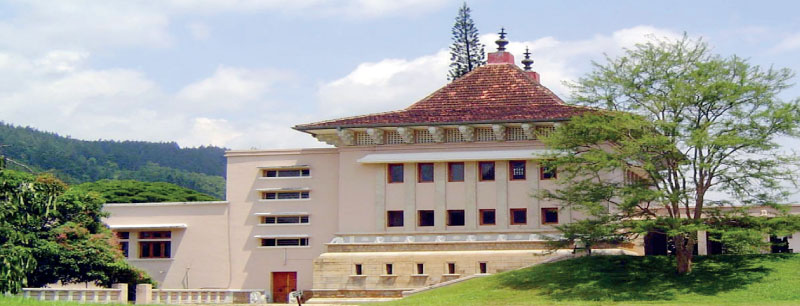
While the Government can fund its universities and research institutions liberally to increase their R & D portfolio, it should incentivise the private corporate sector to increase its R & D expenditure and supplement the Government’s efforts
 Inventions and innovations go hand in hand
Inventions and innovations go hand in hand
Part VIII of the article in this series argued that Sri Lanka should create an ‘innovation economy’, and not just a knowledge economy, by using the research think-tanks at universities and research institutions if it is to deliver sustained prosperity to its people. Knowledge creates inventions but inventions alone will not help a nation unless they are used for producing commercially viable goods and services for use by people at home and abroad. That process, it was pointed out, is being completed by entrepreneurs who function as innovators. Hence, inventions and innovations should go hand in hand if the process is to deliver success. What this means is that knowledge without practice is fruitless.
Knowledge is treasure but practice is key to it
This was a wisdom known even in ancient times. For instance, the Chinese philosopher, Lao Tsu who lived in the 5th century BCE is said to have emphasised the importance of practice when he said that ‘knowledge is a treasure, but practice is the key to it’. Similarly, the 4th century BCE Indian Guru, Chanakya, also known as Kautilya, said in Chanakya Neethi or Ethics of Chanakya that ‘there is no use of knowledge confined to books only’ meaning that knowledge, for its proper benefit, must be applied in practice. In modern times, this was retold by London University’s Education Professor Alison Wolf when she asked the question aloud ‘Does Education Matter?’ in her 2002 book under the same title. The subtitle of the book, namely ‘Myths about education and economic growth’ gives a clue to the answer to the question she has raised. According to her, education matters only if it is relevant education and there are conditions conducive for the application of that education in practice.
Government’s job is to make education relevant and applicable
Making education relevant and creating conditions conducive for practical application of knowledge built through education are matters for governments to deliver by having appropriate public policies. That involves a shift in government policy in two areas. That is, increasing the country’s expenditure on research and developments or R & D progressively over the next two and a half decades and creating conditions for private entrepreneurs to use that new knowledge in the production of goods and services.
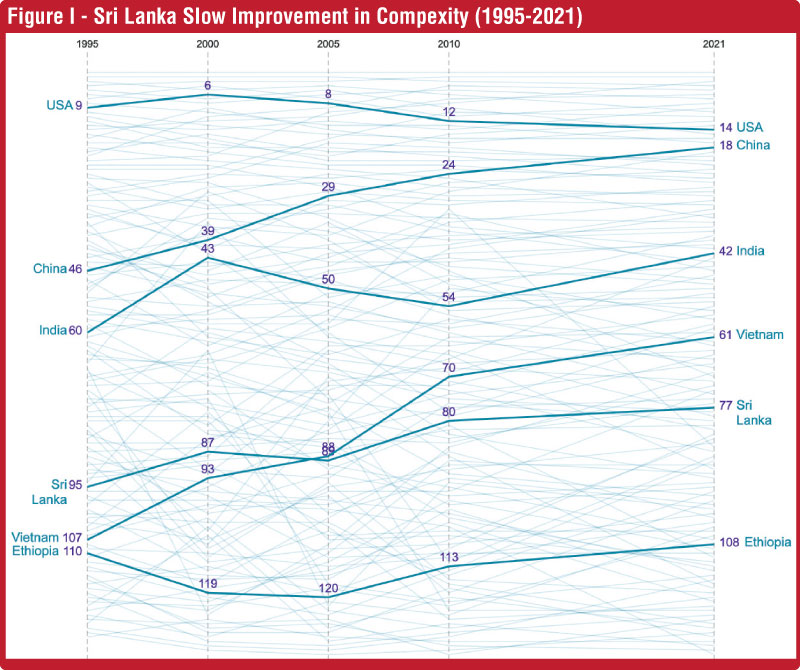
Countries that have moved into complex production systems have been winners
Advanced economies in North America, Europe and East Asia have transformed their economies from simple production systems to complex production systems to keep them afloat in the ever-competitive global economy. The example set by them has been followed by newly advanced economies in Southeast Asia such as Singapore, Taiwan, Hong Kong, and South Korea. Through deliberate government policy, these countries have transformed their economies from simple production systems to innovative and creative economies. In the meantime, poor countries in Asia, Africa and Latin America have been concentrating on continuing with producing goods for the world market by adhering to simple technology that can be copied by anyone easily. This has led to the creation of a new type of divide between advanced economies and poor countries, namely, a ‘technological divide’ between them. Sri Lanka is in the latter category, but it need not remain in that category forever.
Sri Lanka is ranked low in economic complexity index
Sri Lanka’s economy has been less complex throughout according to the computations of the Harvard University’s Growth Lab (see: https://atlas.cid.harvard.edu/rankings). Figure I shows its ranking during 1995-2021 along with some selected countries. Figure II shows its annual ranking along with the economic complexity value from 2000 to 2021. In 1995, Sri Lanka was ranked at 95 in its economic complexity among 133 countries with reliable data on international trade. This ranking has slightly improved to 77 by 2021. A notable observation in this context is the fast improvement of the complexity ranking of Vietnam. It was ranked below Sri Lanka at 107 in 1995. But its ranking improved to 61st position in 2021 overtaking Sri Lanka. According to Figure II, Sri Lanka’s economic complexity was negative at 0.5 in 2000. It remained so since then showing a marginal improvement to negative 0.24 in 2021. During this period, Vietnam has improved its complexity index value from negative 0.59 to positive 0.04. What this means is that Sri Lanka should do a lot to transform its economy from a simple technology one to a high-tech one if it is to attain the goal of being a rich country by 2048. This march is easier for India which also plans to become a rich country by 2047. Its complexity value has improved from positive 0.32 to positive 0.48 during this period.
The dismal performance of Sri Lanka’s exports
Figures III and IV show Sri Lanka’s export structure in terms of complexity and export destination in 2021 mapped by Harvard’s Growth Lab. Exports include the services export as well. The map of the structure of exports shows Sri Lanka’s production mix is made up of goods produced through simple technology. Their destination is centred on a few countries or groups of countries like North America, EU, and the UK. It shows that Sri Lanka should make major change in the both the structure and the destination of its exports. Appropriate strategies should be adopted to realise these goals so that the country can steer through a safe path to richness by 2048.
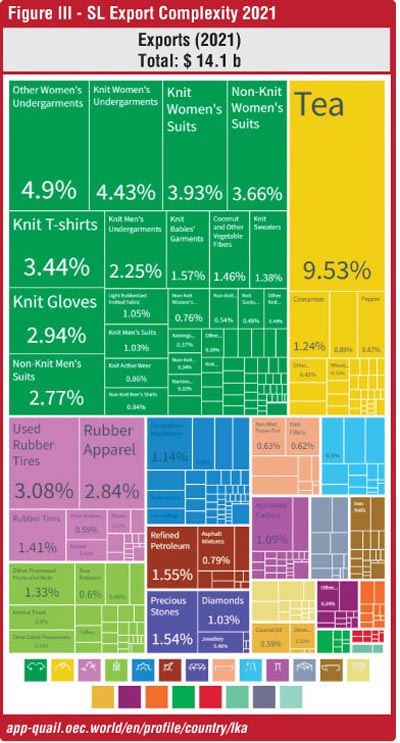 Losses and mismanagement in public enterprises have caused Government to spend less on R & D
Losses and mismanagement in public enterprises have caused Government to spend less on R & D
What this means is that Sri Lanka needs to invest a higher percentage of its income continuously in research and developments or R & D. Sri Lanka’s R & D expenditure stood at 0.13% of GDP in 2018 down from 0.2% of GDP in 2013. The world average in 2020 had been 2.63%, while a high spending country like Israel had spent 5.44%, up from 4% in 2013. Sri Lanka cannot increase its R & D expenses to match these high spenders even in the medium term. But it can start spending more on this vital investment to support its ambitious goal of becoming a rich country by 2048. This cannot be accomplished by the Government alone.
While the Government can fund its universities and research institutions liberally to increase their R & D portfolio, it should incentivise the private corporate sector to increase its R & D expenditure and supplement the Government’s efforts. This requires a targeted policy strategy by the Government.
In South Korea, the modern industrial powerhouse, in the total R & D expenditure in 2018, 70% was supplied by the corporate private sector. Sri Lankan private sector firms are willing to share the burden if the proper policies relating to the protection of intellectual property and fiscal incentives are adopted by the Government.
From the Government side, there is the necessity for repurposing the budgetary expenditure diverting its scanty resources from unrelated consumption expenditure to productive investments such as running a high R & D portfolio. However, what is being invented by universities and research institutions should be connected to the corporate private sector to enable it to commercially produce them, a process known as innovation. At present, in terms of the financial regulations, universities and research institutions should credit the financial gains out of their inventions to the Treasury and seek reallocation of same through the Budget. This prohibitive financial regulation, first introduced during the colonial times, should be amended permitting the researchers to enjoy the fruits of their labour.
The Government should also stop the funding of the losses of the State-owned enterprises to plug the leakage of scanty resources for unproductive expenditure programs. These enterprises make losses in Sri Lanka because they are directed by politicians whose business acumen is much to be desired and run by managers who are appointed by such politicians. The main transformation that should be brought in by the government forthwith is to bring a halt to this unsavoury practice. So long as these politicians have a say in the running of these businesses, they cannot bring in results even when they have been divested to the private sector.
An example is provided by the Sri Lankan Airlines which managed to make a quick comeback under the Emirates management after it was almost wholly devasted by the LTTE attack on the Colombo airport in 2001. It is reported that in 2009 when the Emirates management refused to yield to a top politician, ownership of the airline was revested with State institutions in a bid to punish its independent managers. Since then, its governance system had totally been paralysed causing it to make losses year after year.
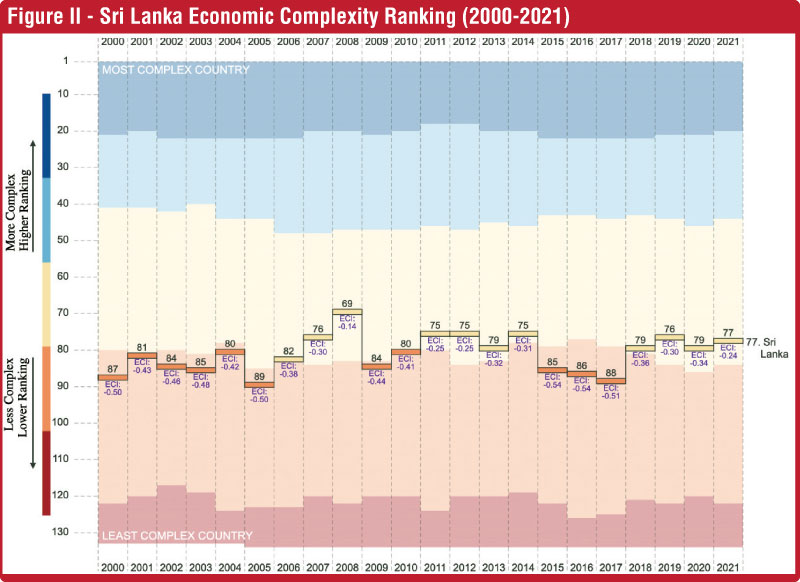
Anti-entrepreneurship sentiments
With respect to entrepreneurship, Sri Lanka has failed to develop an entrepreneurial class with its anti-private sector and anti-entrepreneur policies in the past. Traditionally, it has inculcated in the people a value system which is anti-private sector and anti-profit making. Even in schools, when students celebrate their annual commerce day, short dramas are staged by them depicting the middleman as an exploiter ignoring his service as an agent to reduce the transaction costs to be incurred by both the consumer and the producer. Such themes played in dramas by students demonstrate that, contrary to the objective of commerce, they are harbouring in them a value system that downgrades their own future career as practitioners of commerce.
Killing of entrepreneurship in the private sector by the Government
The Government policy too has been anti-private sector and anti-businessmen. Whenever a local entrepreneur of worth emerged from the dusts at the ground level, Sri Lanka had killed him either by expropriating his business under the pretext of serving the common man or bringing him within a strict governmental regulatory regime to prevent him from, as the country’s leaders had argued, harming the people. Hence, in the whole of the post-independence period, leading industries were started and managed by the Government by employing bureaucrats who had no knowledge of running businesses in a competitive environment or handing such industries to political supporters whose only interest in the industry was to serve their political masters.
Even the trader type entrepreneurs who got nourished in the system could not work on their own and had to seek comfort of the country’s rulers to win numerous business favours from them. Thus, creativity and innovativeness, the two pillars on which a true entrepreneur would stand high in society, were alien to Sri Lanka’s entrepreneurial class. They were, for all practical purposes, shrewd businessmen who took advantage of the prevailing regulatory and protective regime of the country. Hence, in an environment where there is free competition in the market, they would find it difficult to survive unless the Government comes to their rescue.
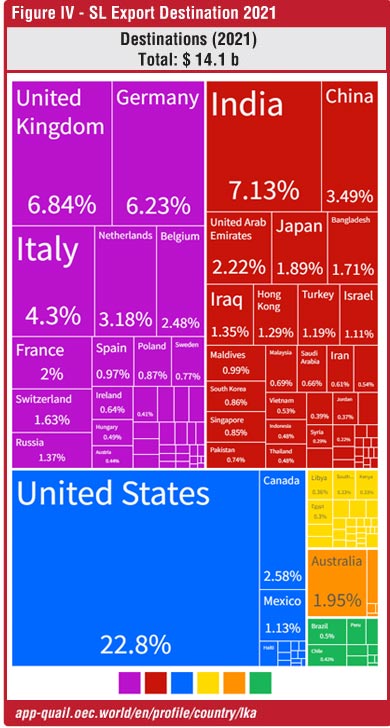 The need is for thousands of creating minds
The need is for thousands of creating minds
The Harvard academic Howard Gardner in his Five Minds for the Future has noted that throughout human society and in almost all societies, there was no place for creativity. It was neither sought after nor rewarded. But it is an essential element for future growth. It comes from people who take the challenge and risk to see beyond the frame. It is not the conformists who have caused advancement in society. It is the duty of the State to give full protection to those who desire to redesign the present to have a better future for all. This is missing in Sri Lanka and the State has used to persecute those who want to see the present from a different angle. If this is continued, it will surely derail Sri Lanka’s march toward richness by 2048.
Protect the property rights
An important policy change that should be made by the Government to build an innovating entrepreneurial class has been the protection of property rights. Property rights are the right of a person to hold property – both human and physical – that generates an income stream to its holder. The person concerned must have the right to dispose of his property in the market in a voluntary exchange. There should not be possibilities for any private party or the Government to grab it from him without his consent and without compensating him properly. To protect the property rights, the Government should observe the Rule of Law and maintain law and order. To ensure both these pre-conditions, there should be a judiciary which is independent and free from influences of the Government and the politicians who make up the Government.
In addition, the law enforcement agencies, namely, the Attorney General and his staff and the Police, should also be able to conduct their affairs freely and independently. It is not sufficient to introduce constitutional provisions safeguarding their independence since the Government in power can always abuse its powers by exercising its majority power in Parliament. To keep a proper check on these agencies as well as the Government and its politicians, it is necessary to empower civic society institutions which will function as watchdogs protecting the rights of the people.
A society which does not uphold the rights of these civic society institutions is unlikely to protect the property rights of the people. When property rights are violated, there is no entrepreneurship too in such a society.
Lay a firm foundation
Hence, Sri Lanka today should lay foundations to build several strong pillars in its economy. First, it should take measures to convert the simple product economy to a complex product economy. Second, to do so, it should promote R & D activities by its universities and research organisations. Third, it should give a proper value to private businesses. Fourth, to enable the private businesses to function as innovators, it should protect the property rights by observing the Rule of Law, maintaining law and order and upholding the independence of the law enforcement agencies.

Part I of this series can be seen at
Part II at
Part III at
Part IV at
https://www.ft.lk/columns/Target-2048-Part-IV-Private-sector-should-not-just-sit-aloof/4-751482
Part V at
Part VI at
Part VII at
https://www.ft.lk/columns/Target-2048-Part-VII-Develop-a-knowledge-based-innovative-economy/4-752288
Part VIII at
(The writer, a former Deputy Governor of the Central Bank of Sri Lanka, can be reached at [email protected].)